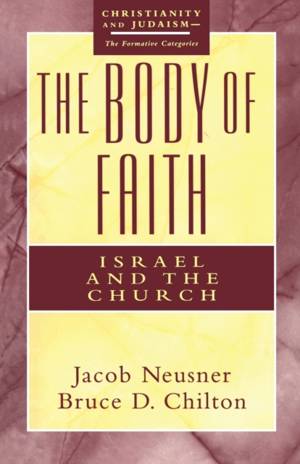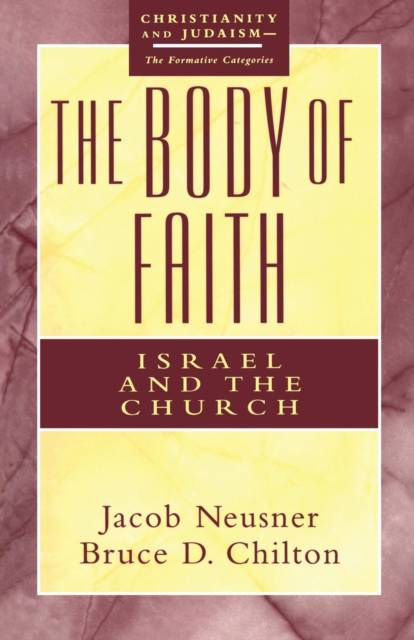
- Retrait gratuit dans votre magasin Club
- 7.000.000 titres dans notre catalogue
- Payer en toute sécurité
- Toujours un magasin près de chez vous
- Retrait gratuit dans votre magasin Club
- 7.000.0000 titres dans notre catalogue
- Payer en toute sécurité
- Toujours un magasin près de chez vous
Description
Here is the second of three volumes (the first, Revelation: The Torah and the Bible, was published in 1995) whose purpose is to compare and contrast the paramount theological categories of Judaism and Christianity. The volumes provide the faithful of both Judaism and Christianity with informative, factual accounts of how Judaism and Christianity addressed the same issues and set forth their own distinctive program and set of propositions.
While religions speak to individuals in the privacy of their hearts, they also define themselves through social entities such as "church," "holy people," "nation of Islam," "kingdom of God." In this book, Professors Neusner and Chilton bring reader to a consideration of "Israel" in Judaism and Christianity. When Jews call themselves "Israel," their initial claim is that they constitute the "Israel" to whom God gave the Torah. All of those who inherit these Hebrew scriptures, specifically Christians, also claim to form an "Israel" because they receive these scriptures.
Individual chapters in part one deal with Israel in the theology of Judaism, Israel as a kingdom of priests and holy nation, Israel as family, and Israel as (Christian) Rome. Part two examines Jesus and the absence of Israel; the Israel of James, the community of "Q" and Peter; and the church (ekklesia) in the Synoptic Gospels, Paul, Hebrews, and Revelation.
The volumes in this series are excellent resources for all who wish to deepen their understanding of Judaism and Christianity and the relationship between these two great traditions.
Jacob Neusner, leading scholar of the formative age and writings of Judaism, is Distinguished Research Professor of Religious Studies at the University of South Florida, Tampa.
Bruce D. Chilton, New Testament and Judaic scholar, is Bernard Iddings Bell Professor of Religion at Bard College, Annandale-on-Hudson, NY.
While religions speak to individuals in the privacy of their hearts, they also define themselves through social entities such as "church," "holy people," "nation of Islam," "kingdom of God." In this book, Professors Neusner and Chilton bring reader to a consideration of "Israel" in Judaism and Christianity. When Jews call themselves "Israel," their initial claim is that they constitute the "Israel" to whom God gave the Torah. All of those who inherit these Hebrew scriptures, specifically Christians, also claim to form an "Israel" because they receive these scriptures.
Individual chapters in part one deal with Israel in the theology of Judaism, Israel as a kingdom of priests and holy nation, Israel as family, and Israel as (Christian) Rome. Part two examines Jesus and the absence of Israel; the Israel of James, the community of "Q" and Peter; and the church (ekklesia) in the Synoptic Gospels, Paul, Hebrews, and Revelation.
The volumes in this series are excellent resources for all who wish to deepen their understanding of Judaism and Christianity and the relationship between these two great traditions.
Jacob Neusner, leading scholar of the formative age and writings of Judaism, is Distinguished Research Professor of Religious Studies at the University of South Florida, Tampa.
Bruce D. Chilton, New Testament and Judaic scholar, is Bernard Iddings Bell Professor of Religion at Bard College, Annandale-on-Hudson, NY.
Spécifications
Parties prenantes
- Auteur(s) :
- Editeur:
Contenu
- Nombre de pages :
- 208
- Langue:
- Anglais
- Collection :
Caractéristiques
- EAN:
- 9781563381577
- Date de parution :
- 01-11-96
- Format:
- Livre broché
- Format numérique:
- Trade paperback (VS)
- Dimensions :
- 139 mm x 213 mm
- Poids :
- 285 g

Les avis
Nous publions uniquement les avis qui respectent les conditions requises. Consultez nos conditions pour les avis.






